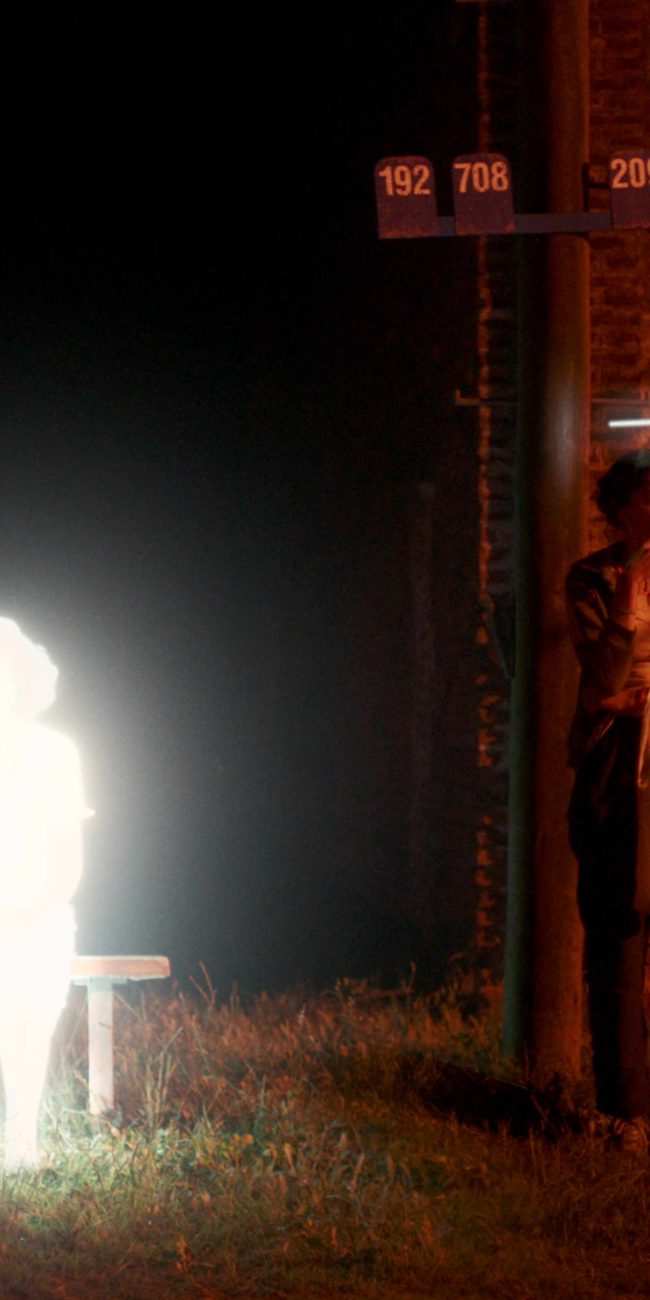They Don’t Rate: Armond White Dismisses Karina Longworth/Spout/Internet in General
Never in my life have I had the urge to “live blog” or “live Tweet” a situation as it’s transpiring. But about twenty minutes into yesterday’s “New York Film Critics Circle Panel” at the 2009 Hamptons International Film Festival, I couldn’t help myself. In response to moderator James Toback’s question as to whether or not a mob mentality can sway even the most ethical critic/reviewer, Variety’s John Anderson recalled this year’s Sundance Film Festival, when he published the earliest word on Lee Daniels’ Precious: Based on the Novel ‘Push’ By Sapphire. Anderson said that he was glad some other naysayer hadn’t landed the first blow, for it could have set a negative standard that would have ruined that film’s chance at breakout success (certainly, his negative review would have been read by Oprah, who would have immediately crossed the movie off her to watch list, never to be thought of again). For Anderson, there most certainly is a mob mentality in effect. He went on to confess that he felt responsible, in this particular case, for rocketing that movie into the very merry cosmos. And that’s when I broke out my cell phone and commenced to Tweeting.
Unfortunately, the forced brevity of Twitter’s 140-character format created an accidental stir when I mentioned Armond White’s takedown of Karina Longworth but was unable to explain things more clearly. I apologize for that, and am writing this now to hopefully clarify things. For the record, I am writing about the panel with just under one day of remove, but I trust that any of the other attendees, including indieWIRE’s Eugene Hernandez and IFC Center’s C. Mason Wells, will back me up on the facts, if not every single word. And while I’d like to write a full report on the panel, I don’t feel fully equipped to do that. I should have audio recorded that mofo. Whoops. Anyway, for now, let’s focus on Armond and Karina.
“New York Film Critics Circle Panel Discussion”
Moderator: James Toback (writer/director)
Panelists: NYFCC chairman Armond White (New York Press), Marshall Fine (Star Magazine, The Huffington Post), Karen Durbin (Elle Magazine), Thelma Adams (US Weekly), John Anderson (Variety)
Not too long into the proceedings, when the topic of shrinking space entered the fray, many acknowledged how the internet is one of the only places for longer pieces to be written anymore (Fine has used this opportunity to start his own blog, Hollywood and Fine, while Adams said she was perfectly pleased with her relatively clipped word count). Durbin contributed to the discussion by expressing her enthusiasm for the internet as a wonderful place to read more in-depth criticism, pointing out Spout’s Karina Longworth as a shining example. She acknowledged that Longworth had taken her to task before, but she didn’t care. She loved reading Ms. Longworth.
Later, Longworth’s name came up again, leading to the moment of controversy. Things began getting fiery with regards to the basic idea of the internet’s democratization of authoritative/professional voices, which Anderson and White both believed was a broader cultural epidemic, not just a film-centric one. Anderson struggled to express his disgust with this rapidly devolving world, but the gist of it was that he feels the internet is making every voice count as much as the next person’s, to the point where there is no hierarchy anymore. Durbin stood up on behalf of the internet, mentioning Longworth once again, at which point White dismissively reminded Durbin that he was proud to be a member of a professional organization. When she asked him if he’d read Longworth’s writing at Spout, he replied that he had and stressed that she/they were not a member of their own organization for a reason, adding, “The reason is they don’t rate.” Let it be known: At no point did Armond White say Karina Longworth’s name or speak about her with any measure of specificity. Durbin started pressing further, voices started piling on top of one another, and it felt like all hell was about to break loose, but instead of turning into a full-blown war, everyone regrouped and took the discussion in another direction. And somewhere in Abu Dhabi, Karina Longworth’s ears started getting outrageously itchy.
The problem here is that White’s reaction could be interpreted in two ways:
1) He didn’t actually know who Durbin was referring to but he knew that she was talking about internet writing and that was enough to warrant a curt dismissal (hence, his use of the word ‘they’ instead of ‘she’).
2) The ‘they’ was, indeed, referring to Spout and Longworth specifically.
From his language and behavior, I took it to be the latter, though Wells believed it to be the former. Hernandez, who generously contributed his notes to me for this piece, said in an email, “I feel like he was speaking generally, but focused on Karina and Spout as representative since they were the topic of the conversation.” Whatever the case, the fact remains that White’s tone of dismissal had that particularly rank air of institutional condescension. It was as if anything written specifically for the internet was amateur, sloppy, irrelevant, and, perhaps most incorrectly, unpaid.
While that idea of “salary = professionalism” makes sense in some theoretical classrooms, in reality it’s a dangerously corrupt concept. Does that mean a person who directs a corporate video for a paycheck is an “official” director and a winner of the Spirit Awards’ “Someone to Watch” award is an unprofessional amateur because he or she didn’t get paid to direct his or her movie? White seemed to imply that Longworth was an unpaid blogger—again, that question of ‘they’ muddles the dilemma at hand—to which a few of us wanted to point out that Ms. Longworth’s position at Spout did, indeed, earn her a salary that was probably equivalent to what many of those panelists were making. Perhaps this was an instance of the panel format getting in the way and not allowing White to be more clear, but my hunch is that if pressed on a topic like that one, his shoe would have only slid further down his esophagus.
I would love to read an actual transcription of the Durbin/White showdown, but I also think it would only support my above confusion. I honestly think the only answer is to press him on it further. If I see Armond today, I promise to corner him and get some clarification!
Before I get back to today’s festival action, I’ll leave you with some more highlights/reflections from the panel:
– James Toback has a lot of well-known friends.
– Toback raising one of the more interesting questions of the day, asking if each writer felt an obligation to preface their reviews by admitting personal biases in order to provide personal context for a reader.
– John Anderson really hates Kevin Costner (is it because he kind of looks like him?).
– Marshall Fine has an aversion to Drew Barrymore.
– “[Film criticism] is kind of like an episode of House.” — Thelma Adams
– Anderson mentioning how White has often been ‘blacklisted’ for speaking his mind and then adding, “Poor choice of word,” to which the room fell into an uncomfortable silence.
– “I write about television for Star Magazine.” — Marshall Fine, trying to defend television writing as everyone else attacked it, not realizing that this statement was a more appropriate exhibit for the prosecution.
— Michael Tully











